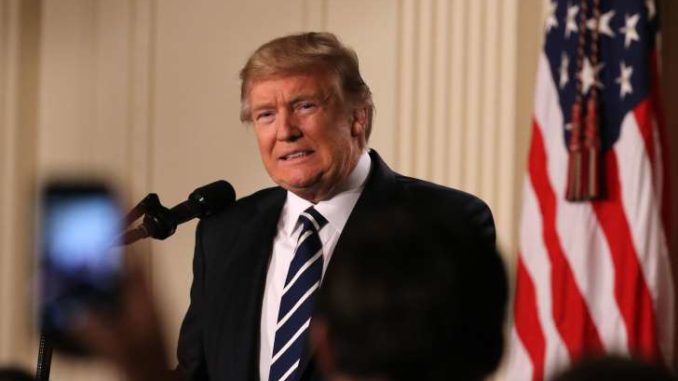
WASHINGTON ― It’s been less than a week since President Donald Trump signed a sweeping ban on certain foreign nationals and all refugees entering the U.S., but his administration has already had to make multiple tweaks to account for its vague language.
The administration made another change on Wednesday. A counsel to the president issued guidance to government agencies saying the executive order does not apply to legal permanent residents, also known as green card holders, and that they will no longer need special waivers to re-enter the U.S. White House press secretary Sean Spicer announced the “update,” as he put it, during a daily briefing with reporters.
Trump’s initial executive order , which he signed Friday, was phrased so broadly that it affected green card holders who had left the country only to find out later that the president had tried to block their return.
The order bars most nationals of seven Muslim-majority countries ― Iran, Iraq, Libya, Somalia, Sudan, Syria and Yemen ― from entering the country for at least 90 days. It also suspends refugee resettlement for 120 days, and indefinitely blocks Syrian refugees from the United States.
The ban was applied to legal permanent residents originally from those seven countries, many of whom were initially detained upon returning to the United States. More than 1,000 of them were admitted under special waivers. Now, based on the White House guidance, those individuals will not need a waiver.
The Department of Homeland Security announced additional exceptions to the ban on Tuesday, including Iraqis who worked for the U.S. government in positions such as translators. Officials also said the ban does not apply to dual nationals of the seven countries. For example, someone with Syrian and French nationality can enter the U.S. using their French passport.
The exceptions only apply to a small fraction of the population potentially affected by the order: tens of thousands of refugees and millions of citizens of the seven countries who are still barred from visiting the U.S. to work, study, see family or receive medical care.
The initial language allowed for very few exceptions. Some Republicans particularly balked at the inclusion of legal permanent residents and Iraqis who assisted U.S. troops. Members of Congress said they received little guidance about the order, even after it went into effect.
Trump has denied that there were any issues with implementing the order.
“It’s working out very nicely,” he said Saturday.
The latest change to the order came after Donald McGahn, counsel to the president, advised that there was “reasonable uncertainty about whether those provisions apply to lawful permanent residents,” Politico first reported.
MSN











